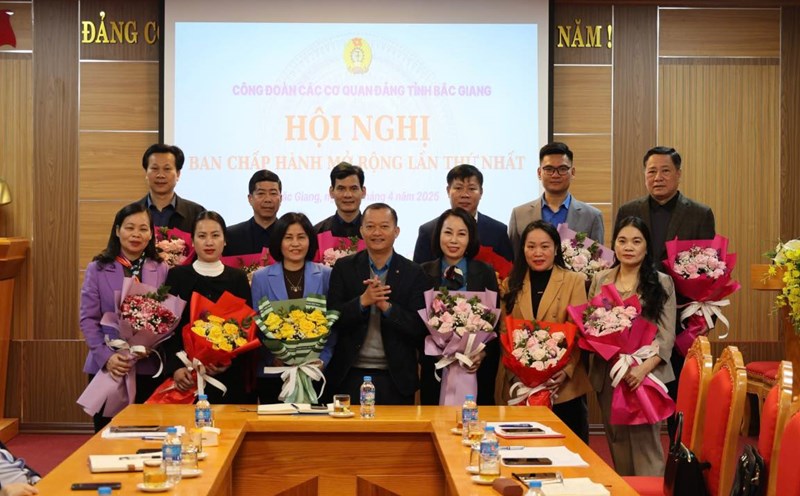Increase basic salary, seniority allowances for employees
Comart Vietnam Co., Ltd. (Bac Giang) specializes in the production of phone support, currently has 200 workers. The company, 100% of which is headquartered in Taiwan (China), was established in 2019, but due to the COVID-19 pandemic, it will not be put into operation until 2021.
After its establishment, the company's grassroots trade union (CDCS) conducted negotiations and signed the first Collective Labor Agreement in 2022. This Collective Labor Agreement lasts for 3 years. In early April 2025, although the Collective Labor Agreement had not expired, due to major changes, the Trade Union and business leaders began negotiating and signing a new Collective Labor Agreement.
This Collective Labor Agreement has many new points, which are more beneficial to employees than the law and compared to the previous period, in which the lowest basic salary of employees was increased from 4.8 million VND/month to 5.3 million VND/month.
Currently, the regional minimum wage applied in the area where the company operates is 4,410,000 VND/month.
In addition, workers are given an additional 7th day of the month (in the third week) in addition to weekly days off on Sundays.
Workers are entitled to seniority allowances increased according to working time: Workers who have worked for 6 months or more will receive an allowance of VND 100,000/person/month; from 1 year or more: VND 200,000/person/month; for 2 years: VND 500,000/person/month; worked for 3 years: VND 1 million/person/month; worked for 4 years: VND 1.5 million/person/month; from 5 years or more is VND 2 million/person/month. These are all higher levels than before.
This regulation contributes to helping the company retain old employees, attract new employees to work; workers become more attached to the company, said Ms. Vu Hong Nhung - Chairman of the company's Trade Union.
Another provision in the Collective Labor Agreement is that probationary employees are paid 100% of their salary as official employees and are eligible to participate in social insurance.
Ms. Vu Hong Nhung added that before holding a negotiation meeting to sign the Collective Labor Agreement, the Executive Committee of the trade union synthesized the opinions of workers.
Building harmonious and stable labor relations
On April 10, Mr. Ha Minh Vi - Permanent Vice Chairman of the Trade Union of Industrial Parks of Bac Giang province - said that up to now, 198/228 enterprise trade unions have negotiated and signed collective labor agreements with employers (accounting for 86.84%).
From the beginning of 2025 to now, 32 grassroots trade unions have signed collective labor agreements, including 15 new signings and 17 amended, supplemented and re-signed ones.
Mr. Ha Minh Vi said: In general, the signed collective labor agreements ensure the rights and obligations of both sides in labor relations, which are more beneficial to employees...
From the Collective Labor Agreements, many enterprises have had competition and applied preferential policies to attract talented and highly skilled workers, creating cohesion between workers and enterprises. Therefore, in the past time, the Collective Labor Agreement has encouraged the promotion of democracy, building harmonious, stable and progressive labor relations in enterprises in industrial parks in Bac Giang province".
Ms. Diem Bich Lien - Head of the Department of Legal Policy and Labor Relations (Bac Giang Provincial Federation of Labor) assessed that the vast majority of collective labor agreements signed in the province have provisions that are more beneficial to employees than those prescribed by law, including provisions on shift allowances, gasoline, diligence, seniority, etc.
In the coming time, the Provincial Federation of Labor will continue to require the grassroots trade unions to do a good job of collective bargaining. The Provincial Federation of Labor noted that collective labor agreements do not need to be long, but must ensure that there are provisions that are more beneficial to workers than the law, avoiding copying the law.











